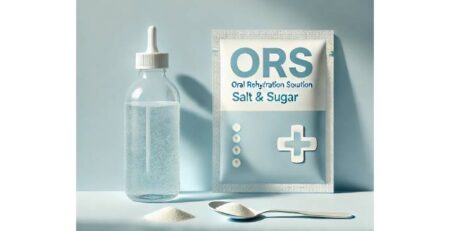Milk tea wipe-out health benefits
Milk and tea, each packed with their own set of health benefits, have been consumed for centuries across various cultures. However, when combined, the nutritional advantages are significantly diminished. Despite its widespread popularity, especially in India, milk tea can lead to several health concerns, including acidity, inflammation, and bloating.
The Science Behind Milk Tea’s Health Risks
Tea is rich in powerful antioxidants such as catechins and epicatechins, which provide numerous health benefits, including reducing inflammation and fighting free radicals. However, when milk is added, the proteins in milk bind to these antioxidants, effectively reducing their potency. This interference limits the absorption of beneficial compounds, leading to increased acidity and inflammation.
The addition of sugar only worsens the situation. A typical cup of milk tea contains a high amount of refined sugar, which contributes to insulin spikes, increased risk of diabetes, and weight gain. Additionally, consuming milk tea on an empty stomach—an everyday practice for many—can lead to severe digestive issues like bloating and dehydration.
Research Findings: How Milk Affects Tea’s Benefits
A study published in the European Heart Journal found that drinking tea offers protective benefits against heart disease. However, these benefits are nullified when milk is added. Researchers discovered that milk alters the biological activity of tea, specifically reducing its ability to relax blood vessels, which is crucial for maintaining heart health. The casein proteins in milk interact with the catechins in tea, preventing the body from fully absorbing these beneficial compounds.
The flavonoids in tea are responsible for stimulating the production of nitric oxide, a chemical that aids in improving blood circulation and lowering blood pressure. When milk is added, this process is significantly delayed, leading to a decreased positive impact on cardiovascular health.
Why You Should Avoid Milk Tea on an Empty Stomach
Drinking milk tea first thing in the morning is a common habit among Indians, but it can do more harm than good. Consuming tea on an empty stomach increases acid production in the stomach, leading to irritation, heartburn, and discomfort. This habit can also disrupt digestion, cause dehydration, and even contribute to long-term digestive disorders.
For those who experience frequent bloating or irritable bowel syndrome (IBS), milk tea can further aggravate symptoms. The dairy content in milk tea slows down digestion, while the caffeine in tea can overstimulate acid production, worsening gastrointestinal issues.
Why Milk Tea Can Be Harmful
1️⃣ Boiling Tea Leaves in Milk & Water – A Risky Habit
In many countries, especially India, tea is prepared by boiling tea leaves directly in milk and water. Some variations, like special tea, are made with pure milk, boiled for an extended period until it turns deep brown. This process may seem harmless, but it has some concerning effects:
✅ Over-Boiling Tea Leaves Releases Excess Tannins
- Tannins in tea give it a rich flavor, but when over-boiled, they increase acidity and may cause stomach discomfort, bloating, or acid reflux.
✅ Milk Protein & Tannins Interaction
- Boiling tea leaves directly in milk reduces the absorption of antioxidants present in tea. The proteins in milk bind with tannins, making them less effective for health benefits.
✅ High Caffeine & Digestive Issues
- Over-boiled tea has higher caffeine content, which can contribute to insomnia, restlessness, and digestive distress when consumed in excess.
✅ Acidity & Dependency
- Strongly brewed milk tea can lead to acidity and even make people dependent on it. Many individuals experience discomfort if they skip their regular tea intake.
Healthier Ways to Prepare Milk Tea
If you love milk tea but want to make it less harmful, consider these alternative preparation methods:
✅ 1. Western-Style Tea Preparation
Rather than boiling tea leaves in milk, follow this simple method:
- Boil water first, then add tea leaves.
- Let it steep for a few minutes.
- Add hot milk separately and stir.
💡 Why?
This prevents excess tannin release, reduces acidity, and preserves more antioxidants in the tea.
✅ 2. Use Milk Powder or Condensed Milk Instead
Instead of regular milk, try:
- Adding milk powder after the tea is brewed.
- Using condensed milk (milkmaid) instead of boiling milk.
💡 Why?
Since the tea is already brewed, this method prevents protein-tannin binding, making it gentler on digestion.
✅ 3. Reduce Tea Intake & Portion Size
If you drink tea twice a day, try reducing it to once.
If you drink large cups, switch to a smaller cup.
💡 Why?
Less tea means less acidity, lower caffeine intake, and better gut health in the long run.
Healthier Alternatives to Milk Tea
If you are looking for a healthier way to enjoy your tea without losing its benefits, consider the following alternatives:
- Plain Black or Green Tea – These are loaded with antioxidants and provide multiple health benefits without the interference of milk.
- Herbal Teas – Options like chamomile, peppermint, or ginger tea offer digestive benefits and are soothing for the stomach.
- Tea with Plant-Based Milk – If you enjoy a creamy texture, consider almond or oat milk, which do not interfere with the absorption of antioxidants.
- Lemon Tea – Adding lemon instead of milk enhances the antioxidant properties of tea and supports digestion.
Conclusion: Rethink Your Tea Habits
While milk tea may be a comforting and traditional beverage, its health implications should not be ignored. The loss of antioxidants, increased acidity, and risk of digestive issues make it a less-than-ideal choice, especially on an empty stomach. By opting for healthier alternatives, you can continue to enjoy tea while reaping its full range of health benefits.
Disclaimer: FitToFlaunt.com strongly recommends consulting a physician before making any significant dietary changes. This article is for informational purposes only and does not serve as medical advice. By engaging in dietary or health-related practices, you acknowledge that you do so at your own risk. health-related practices, you acknowledge that you do so at your own risk.











